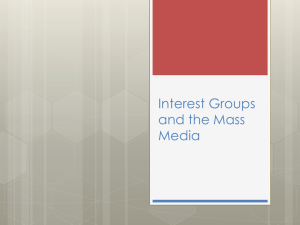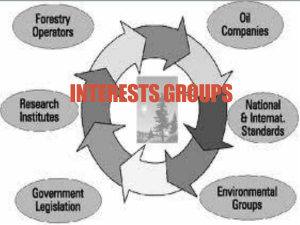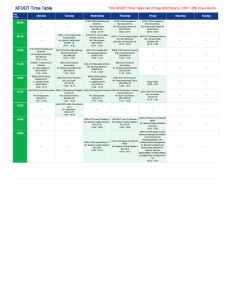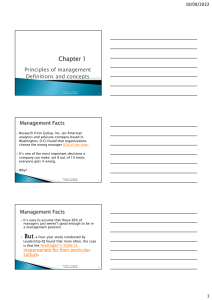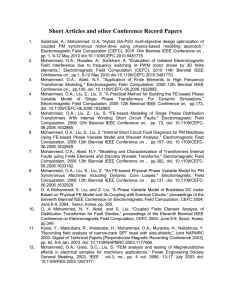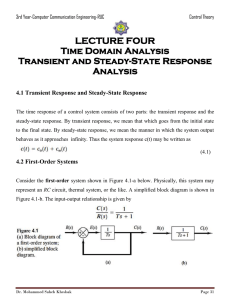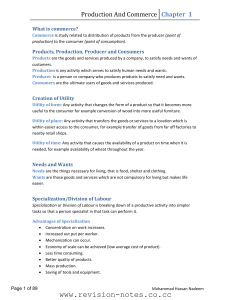Proceedings of 33rd International Business Research Conference
advertisement
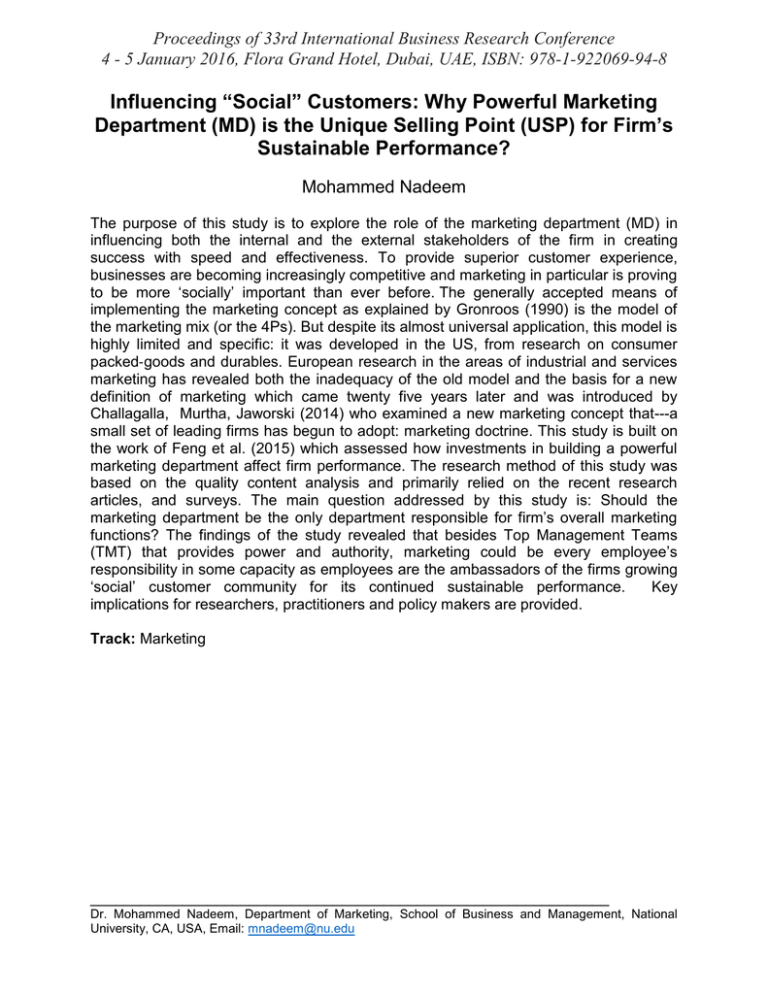
Proceedings of 33rd International Business Research Conference 4 - 5 January 2016, Flora Grand Hotel, Dubai, UAE, ISBN: 978-1-922069-94-8 Influencing “Social” Customers: Why Powerful Marketing Department (MD) is the Unique Selling Point (USP) for Firm’s Sustainable Performance? Mohammed Nadeem The purpose of this study is to explore the role of the marketing department (MD) in influencing both the internal and the external stakeholders of the firm in creating success with speed and effectiveness. To provide superior customer experience, businesses are becoming increasingly competitive and marketing in particular is proving to be more ‘socially’ important than ever before. The generally accepted means of implementing the marketing concept as explained by Gronroos (1990) is the model of the marketing mix (or the 4Ps). But despite its almost universal application, this model is highly limited and specific: it was developed in the US, from research on consumer packed‐goods and durables. European research in the areas of industrial and services marketing has revealed both the inadequacy of the old model and the basis for a new definition of marketing which came twenty five years later and was introduced by Challagalla, Murtha, Jaworski (2014) who examined a new marketing concept that---a small set of leading firms has begun to adopt: marketing doctrine. This study is built on the work of Feng et al. (2015) which assessed how investments in building a powerful marketing department affect firm performance. The research method of this study was based on the quality content analysis and primarily relied on the recent research articles, and surveys. The main question addressed by this study is: Should the marketing department be the only department responsible for firm’s overall marketing functions? The findings of the study revealed that besides Top Management Teams (TMT) that provides power and authority, marketing could be every employee’s responsibility in some capacity as employees are the ambassadors of the firms growing ‘social’ customer community for its continued sustainable performance. Key implications for researchers, practitioners and policy makers are provided. Track: Marketing ______________________________________________________________ Dr. Mohammed Nadeem, Department of Marketing, School of Business and Management, National University, CA, USA, Email: mnadeem@nu.edu

